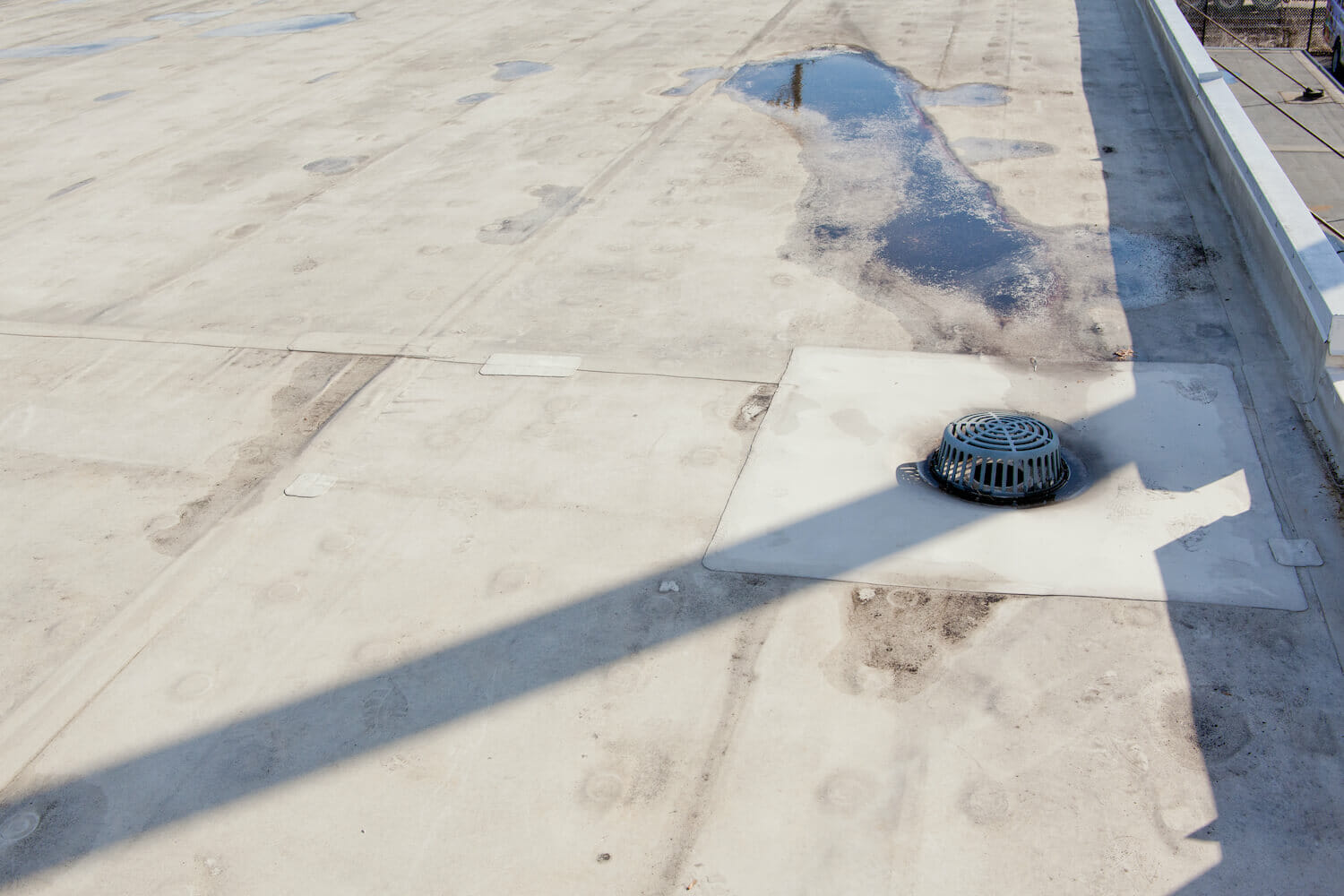Leaves and small debris may not seem like something that can damage a hardy commercial roofing system, but if left alone these little messes can turn into major problems over time, causing leaks and other damage. Regularly cleaning gutters and roof drains should be an integral part of any roof management program. Here are some tips for keeping those roofs sparkling clean:
Know your draining system
You’ve probably heard of gutters, but what is a roof drain? Roof drains are typically used on large commercial roofs to drain from the interior part of the roof and not just the edges. Whether you have gutters or a roof drain will change the frequency and type of debris removal that your roof requires. A professional roofer should be able to immediately identify which type of draining system a roof uses and to remove debris accordingly.
Safety first
Whether you’re the one going up on the ladder or you paid a professional to do the job, safety is the most important consideration when removing debris from a roof. Proper safety gear like goggles, gloves, and safety tie offs should be employed during the entire process. It’s also important to consider how the debris will be removed. Throwing leaves and sticks off the side of a roof can be hazardous to people below and workers should consider using bags to store the debris and remove it safely.
Watch out for clogs
A debris cleaning is a great time to examine the gutter and drain systems for clogs and wear and tear. When cleaning a roof, you should also water-test drains and gutters to ensure that moisture on the roof is able to escape properly. Check for loose bolts and screws on gutters, and examine flashings, sealants, and seams for problems. Not just any maintenance worker can do this kind of detailed inspection so it’s important to call in a professional at least a few times a year to make sure everything is working properly.
Prepare for winter
What is just a pile of damp leaves in the fall can become a frozen drain blockage during the winter. Small amounts of water pooling can also become an issue as water seeps into a roof and then freezes and expands. Just because roof debris seems innocuous in the summer doesn’t mean it won’t be an issue later on. Anticipating the change of seasons is an important detail in roof maintenance.
To learn more about how Maxwell Roofing & Sheet Metal can help keep your commercial roof debris-free, contact us today.

